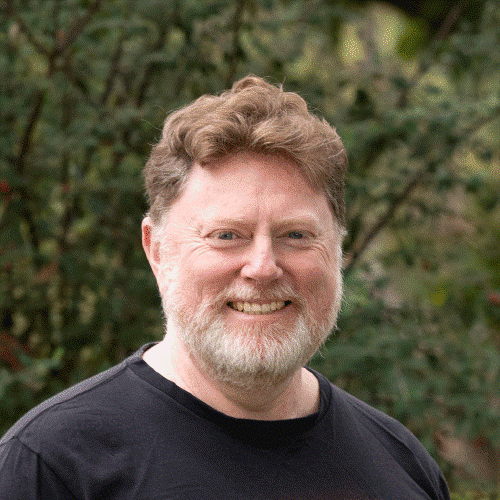
Nils von Kalm
17 September 2023
As a man of mixed heritage, the Reverend Dr Garry Deverell has been able to weave together wisdom from the two different stories he has grown up with.
A proud trawloolway man from northern lutruwita (Tasmania), Garry grew up with two sacred texts. One was country, with his Indigenous father’s stories, and the other text was the Bible, with his mother’s stories. Both texts have formed him deeply into the man he is today.
For him, country is about the interconnectedness of all life in a matrix of mutual care. It forms him in a vocation of responsibility towards both the human and the non-human worlds. All are kin, family.
Alongside this, the Bible assures him that he is loved, and that even the very worst that human beings can do cannot extinguish that love at the centre of all things. To him, the key story cycle of slavery-exodus, exile-return, and crucifixion-resurrection show this. So, for Garry, country forms him in connection, and the Bible forms him in love.
Growing up in a Baptist community in a small town in northern Tasmania, Garry finds a sacredness in both stories and has been able to hold the two together to navigate the complexities of life.
Read more: To decolonise, the church must first recognise Indigenous leaders’ capability
Today Garry is an Anglican priest, having joined the Anglican Church in 2016. A major reason for this was the importance it places on tradition – he highly values tradition and taking seriously what has been said and done in the past. It is something that is important not just to Anglicanism, but to Indigenous culture as well.
He says, “People sometimes ask me, ‘How Anglican are you?’ because I seem to disagree with so much of the received tradition. But I don’t come to those positions without wrestling a lot with what has gone before.”
This consistent wrestling with tradition has led Garry to commit himself to conveying Indigenous people’s long and deep relationship with this country to other Australians. For Garry it is about knowing how to manage this country, particularly its delicate ecosystems. “For thousands of years, we have developed a symbiotic relationship with this country, and our traditions are largely about how you live here in a sustainable way. So, I think we have a gift to give settler colonists about how to live sustainably in this country,” he says.
Embedded in what Garry says is a philosophy and spirituality which sees humanity as part of a series of relationships with other living things rather than the master of them. He is also enthusiastic to bring across that the damage to country that has taken place over the last 230 years of colonisation has had profound effects on the psychological and spiritual health of Indigenous people.
Read more: Indigenous theologians set to challenge Churches to hard conversations
It is partly for these reasons that Garry is spending so much time giving presentations to churches and other community groups about the Voice to Parliament. He has spent this year presenting about the Voice throughout Australia – and now, he says, in some ways all his conversations now touch on the Voice in some way. At the heart of these discussions for Garry is a fundamental decision: whether Australians are going to listen to Aboriginal and Torres Strait Islander people as they try to redesign this country.
Another purpose in Garry’s presentations about the Voice is to dispel some myths that he believes are circulating. For instance, when he has been told that the Voice would entrench race-based privilege in Australia, he quickly points out that we already have race-based privilege here. That privilege is seen in the fact that the majority white population benefits from the goods of this country like no other community does. He wants to emphasise that the Voice is actually trying to undo that race-based privilege so that the poorest and most marginal community in Australia can have some say.
Garry is also a man with a deep pastoral heart. His main concern if the referendum does not succeed is that many young Indigenous people will be devastated, as they have invested so much into the process. He points out that a lot of Indigenous communities are already gearing up for extra levels of care for young people should the vote fail.
Read more: People of faith invited to listen, learn Indigenous perspectives of Voice
Garry’s passion for his culture is indelibly linked with his passion for the gospel. He is convinced that the gospel needs to be reframed into an Australian Indigenous context. He is committed to the message that the good news must make sense in terms of existing Indigenous wisdom, and the recognition that Europeans did not bring God to Australia, but that God was already here long beforehand. “If the gospel is going to be good news for Indigenous people, it has to be related to our existing dreaming stories, as far as it recognises those things which come out of a pre-existing relationship with the Divine,” he says.
Coming from a heritage that includes both Indigenous stories of country as well as stories from the Bible, Garry Deverell’s life shows that it is possible to hold the two together and show their points of commonality. Add to that his desire to wrestle with received tradition, and the Anglican Church in Australia is sure to learn a lot more from him in the future.
For more faith news, follow The Melbourne Anglican on Facebook, Instagram, or subscribe to our weekly emails.






